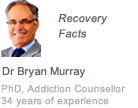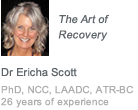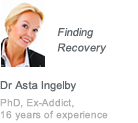Fentanyl Addiction
Recently the numbers of fentanyl addiction have been growing. As more people are prescribed pain killing medications for serious physical ailments it is a sad consequence that some will become addicted to the drugs they have been prescribed. Through no fault of their own, individuals become overly dependent on the drug to make it through their daily lives.
What is Fentanyl addiction?
Fentanyl is a pain relieving drug that is designed to help individuals effectively deal with pain. It is often prescribed and administered by doctors to help their patients deal with serious ailments. For example, some cancer sufferers have been given Fentanyl to help with the pain caused by various cancer treatments. Fentanyl helps to relieve the pain by affecting the receptors in the human brain. The drug is extremely potent and is often prescribed when other medications have not been effective. Fentanyl is available as patches, pills, or ready for intravenous use.
Fentanyl has similar effects to morphine in that it can ease feelings of discomfort and pain, and because it acts directly on the brain receptors it gives users a chemically induced artificial high. Its potency has caused many individuals to become addicted to the brain altering effects of the drug rather than the straight-forward relief of pain. While for the terminally ill that may not be an issue, for those that have a longer lifespan ahead of them it causes huge problems.
The effects of Fentanyl addiction
Chemical dependency is a serious problem because it has so many negative effects on the human body. Fentanyl has been known to slow the reaction time of users and to lead to delayed response times. Many users have trouble thinking clearly as well. The drug can have long lasting effects that damage the brain and body – some damage is irreparable, some will take years to heal. The most common side-effects of ingesting Fentanyl are:
- Difficulty breathing, and depressed respiratory functions
- Extreme fatigue
- Feelings of weakness
- Artificial highs
- Feeling lightheaded
- Skin irritation and rashes
- Drowsiness
- Dry Mouth
Treating Fentanyl addiction
Incarceration is no solution to the problems that plague people addicted to painkillers. People who abuse Fentanyl are not criminals but are ordinary citizens who got hooked on a medically prescribed medication. Fortunately there are ways to treat this addiction and get the sufferers back to normality without the prop of a drug to get them through the day. There are a number of professional treatment options that can help these individuals.
Outpatient facilities offer treatment in the comfort of the user’s house. Some of these programs have had success in helping to wean individuals from painkillers. Although they can work, this is not the first option for most users and nor is it the most successful.
An inpatient care facility removes the addict from their surroundings, providing a safe and supervised environment where the trauma of physical withdrawal can be monitored and full programmes of treatment for sustained recovery can be worked out and applied. It is often easier for an addict to break bad habits when they are not in the same toxic environment that those habits started in.
Holistic treatment of Fentanyl addiction
Fentanyl addicts need to get professional help that aims to deal with and heal the whole person, not only the addiction. Chemical dependency is often a sign of a larger problem that may exist internally. The holistic approach looks at the entire person and helps to address the deep seated issues that may have led to drug abuse. This works a lot better than many traditional detox facilities. They often just address one part of the person which is the chemical dependency and never get to the real issue of what caused the dependency. Users can only truly move forward with recovery once they understand why it occurred.
The recovery process involves learning a new way of doing things. This means opening up the mind to embracing new life affirming habits, actions, and choices. The recovery process may take time but the results are well worth it. The addict is given the tools to live a drug free life day after day without the mind altering effects of painkillers.












